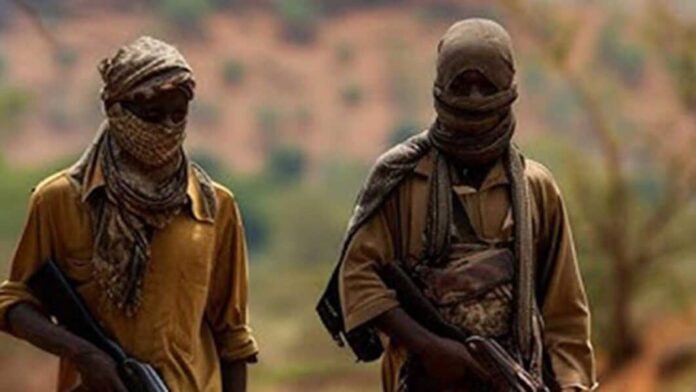From Boko Haram to Lakurawa: A new monster is born
In recent developments along the Niger-Nigeria border, the Nigerian military has reported attacks attributed to a new terrorist group called Lakurawa.
This group, which is said to have links to other terrorist factions in the Sahel region, particularly from Mali and Niger, is seen as a growing threat to the already volatile northwest of Nigeria.
According to the Nigerian army, Lakurawa emerged in 2024, taking advantage of the political instability and recent coups across the Sahel region. Countries like Mali, Niger, Guinea, and Burkina Faso have all experienced military takeovers in the past few years, contributing to the rise of militant groups along borders, particularly where governance is weak. The Nigerian government has been quick to label this group as a new threat, pointing to its potential links to regional instability.
However, according to research by Professor Murtala Ahmed Rufa’i, a scholar in peace and conflict studies at Usmanu Danfodiyo University Sokoto, Lakurawa has been operating in the region for much longer—since 1999. Rufa’i’s findings, based on interviews with local leaders and community members, suggest that Lakurawa was originally formed by a group of herders recruited by local traditional leaders to protect communities from armed bandits.
This group, composed of herders from Mali, settled in border communities and gradually became militarized, using the region’s porous borders to their advantage.
READ ALSO: Troops launch manhunt as Lakurawa rampages in Sokoto, Kebbi
In the beginning, the Lakurawa group was seen as a security force, providing protection against bandits from Zamfara state. Between 2016 and 2017, they were paid for their services and were instrumental in pushing back criminal groups. However, as they gained power, they began to impose their own version of Islam and push for the establishment of a caliphate.
This shift in their activities eventually turned them against the very leaders who had invited them, culminating in violence and the killing of the district head of Balle.
Rufa’i’s research paints a picture of a group that, over time, became a hybrid of armed militants and radical religious zealots.
The Lakurawa now collect taxes from local communities, enforce their own form of sharia law, and engage in various criminal activities. Members of this group speak Fulfulde and Arabic, with their leadership often coming from outside Nigeria—specifically, from Mali and Niger.
The growing power of Lakurawa is directly linked to the failure of the Nigerian government to maintain control in the region. In ungoverned spaces where security forces are scarce, armed groups like Lakurawa can establish their own rule.
This phenomenon has been exacerbated by the lack of state authority and the porous nature of Nigeria’s borders, which allow these groups to move freely across countries without recognition of state boundaries or sovereignty.
READ ALSO: How herdsmen invited Lakurawa terrorist group to Sokoto, members sent on errand to Lagos
Recent operations by Nigerian forces, including air and ground assaults under Operation Fansan Yamma and Operation Farautar Mujiya, have targeted Lakurawa camps.
These efforts came after the group’s attack on Mera, Kebbi State, in early November 2024, which resulted in the deaths of 15 people. While these military operations may temporarily displace the group or reduce its influence in certain areas, they have not addressed the underlying issues of insecurity that allow groups like Lakurawa to thrive.
Professor Rufa’i’s study suggests that the rise of groups like Lakurawa is not merely a result of regional instability but a consequence of systemic failure at the state level.
The lack of proactive intelligence gathering and the absence of a strong security presence in many of the affected areas have left local populations vulnerable to such groups.
Further complicating the situation is the broader insecurity in the Sahel region. The recent coups in Mali, Niger, Guinea, and Burkina Faso have shifted regional power dynamics and created a fertile ground for armed groups to spread their influence.
While the Nigerian military’s narrative of linking Lakurawa to the political upheaval in the Sahel may serve to frame the group as a “new” threat, it does little to address the deep-rooted issues of governance, poverty, and security in northern Nigeria.
As it stands, the challenges posed by Lakurawa and similar groups are not just military in nature. The failure of governance at both the federal and local levels has contributed to the creation of ungoverned spaces where criminal and terrorist groups can thrive.
One possible solution, as suggested by Rufa’i and other scholars, is the establishment of state police forces to give local communities more control over their security. This would decentralize authority from the central government and potentially make law enforcement more responsive and effective.
The situation also highlights the need for greater regional cooperation in addressing the spread of armed groups. Nigerian security forces must work more closely with their counterparts in Niger, Mali, and other neighboring countries to curtail the movement of militants and improve intelligence sharing.
Ultimately, the story of Lakurawa is one of regional failure and missed opportunities for the Nigerian government. While it is easy to label these groups as a “new” threat, their roots in the Sahel’s instability and Nigeria’s own security gaps are much older.
Addressing the rise of groups like Lakurawa requires not only military action but also comprehensive reforms that address the root causes of insecurity and governance failures in the region.
The rise of Lakurawa as a militant group operating along Nigeria’s border with Niger signals a larger trend of insecurity in the region.
While the Nigerian military has launched counterattacks, the broader issue of weak governance and porous borders remains unresolved. More strategic, regional, and local solutions are needed to prevent such groups from gaining further power and endangering the stability of the region.
Follow the Neptune Prime channel on WhatsApp:
Do you have breaking news, interview request, opinion, suggestion, or want your event covered? Email us at neptuneprime2233@gmail.com






